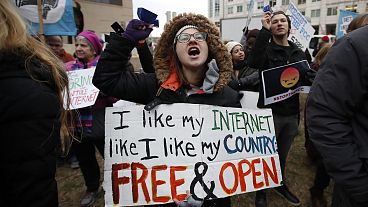By Jan Strupczewski
BRUSSELS -European Union finance ministers will discuss on Monday a surge in consumer prices, its impact on wages and changes they would like made to the bloc's budget rules to support investment and reduce debt.
Inflation rose 4.1% year-on-year last month in the 19 countries sharing the euro, up from 3.4% in September. Ministers are starting to worry that the rise might fuel stronger wage growth, creating an inflationary spiral.
"This has been faster than expected," a senior EU official involved in the meeting said. "The 4.1% should generate a discussion."
The surge was mainly driven by a 23.5% jump in energy prices, which the official said would eventually fall again, though probably not to the levels before the COVID-19 pandemic.
"We should come back to more benign inflation numbers, but the process will be slower than expected and the risk of second-round effects in wage formation is clearly something that needs to be taken seriously and monitored," the official said.
The European Central Bank, which is in charge of keeping inflation at 2% over the medium term, will brief ministers. ECB chief economist Philip Lane, in comments published by Spanish newspaper El Pais on Monday, reiterated the bank's message that high price growth is temporary.
"We believe that next year (supply) bottlenecks will ease and energy prices will decline or stabilise," Lane said. "This current period of inflation is very unusual, temporary, and not a sign of a chronic situation."
The European Commission, which will likewise present its view to the ministers and on Thursday publish its economic forecasts for inflation, also believes inflation will subside.
"Energy prices have a decisive impact in this rise of inflation, and the phenomenon will be a temporary one, probably reducing itself in the first half of next year," Economic Commissioner Paolo Gentiloni told reporters on entering the meeting.
'LONG JOURNEY'
The ministers will start talks on a planned reform of the EU's budget rules, which oblige governments to keep budget deficits below 3% of GDP and debt below 60%, to adjust them to post-pandemic economic realities of high public debt and large investment needs to fight climate change.
The rules now require annual public debt cuts that are too ambitious for most EU countries and provide little explicit support for government investment.
But governments are divided over the extent of changes needed. Southern EU countries are more keen on relaxing debt reduction rules and giving special status to investment like exempting it from deficit calculations, than northern states.
A balance will be needed "between prudent policy and fiscal support for growth", the official said of discussions that will take most of 2022. "This is a long journey. We should not try to rush it," the official said.



